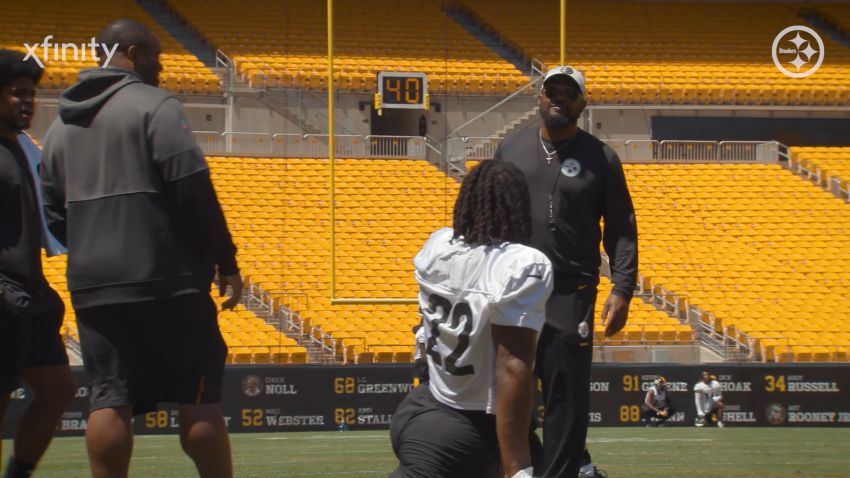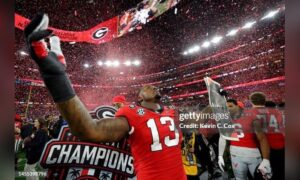For a team who typically drafts in the back half of the first round, it seems often enough that the Pittsburgh Steelers’ desired target is the worst-kept secret in the NFL—and yet, often enough, they end up getting their man. It happened in 2010 with Maurkice Pouncey, for example, then with Cameron Heyward and David DeCastro in the following two years.
As much as it might make you cringe, they ran that count up to four years in a row in 2013 with Jarvis Jones. There have been fewer ‘obvious’ targets in recent years, though they so desired Devin Bush in 2019 that they traded up to get him. Their target being Alabama running back Najee Harris this year, however, was perhaps the most transparent of them all, which they readily admitted after the fact.
And Steelers coaches have had to guard themselves since getting him on the field against simply appreciating what they have in him and making sure that they’re actually coaching him, with running backs coach Eddie Faulkner telling reporters after practice that Harris leaves “nothing to be desired”, and that “the more reps, the better he gets”.
Of course, Pittsburgh’s running game has left much to be desired in recent years, and the organization made for itself the mission of improving significantly in that area after finishing ranked last in the NFL in total rushing offense a year ago. while the drafting of Harris was the most significant piece, it was far from the only move that they made designed to improve the run game. Their only concern with their new back is simply making sure that they are doing their jobs and doing right by him.
“When you have a talent like that as a coach, you want to get the most out of it, so you put that pressure on yourself to make sure he knows what he’s doing. You also have to make sure you’re not catching yourself watching like a fan, too”, Faulkner said, “because there’s things that happen out there where you’re like, ‘man, did you see that?’. So I always try to come with something to coach him up on, some detail, so we can continue to push that train down the track and get him as good as he can be by game one”.
For an individual as self-driven as Harris, it doesn’t seem as though he needs any coaxing to push himself to continue to learn and grow, but he also thrives in that environment. He gives off the impression that he would much rather come back to the sideline after making a great play and hear about what he can do better, rather than what a nice job he did. Partly, because he already knows the latter. And so does everybody else.








